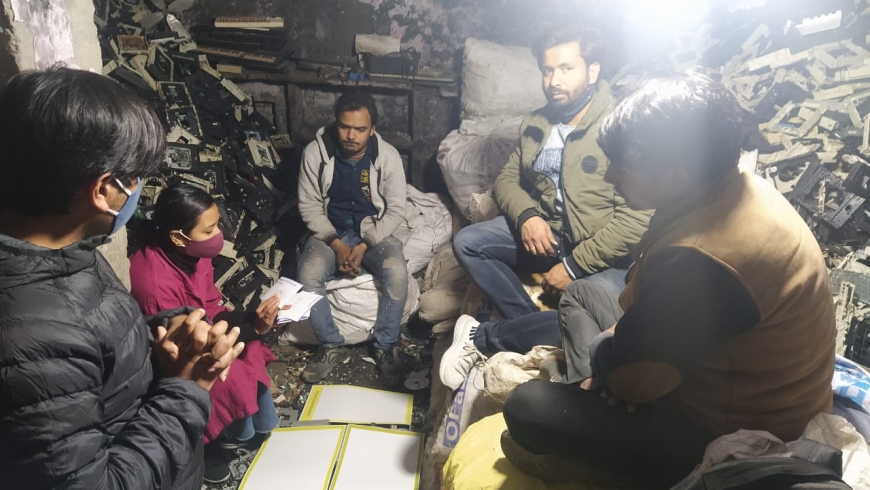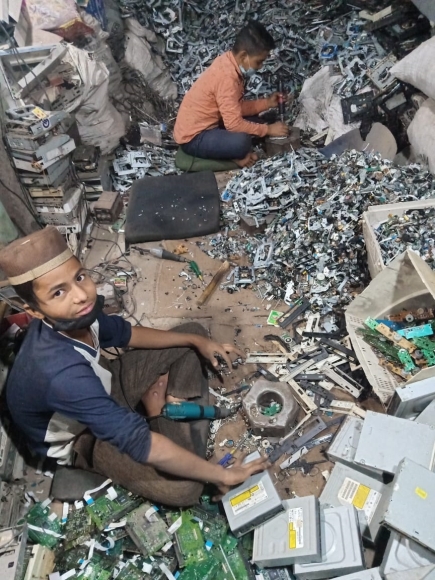Business development in India
Using co-working spaces to recycle e-waste sustainably

In India, more than 90% of e-waste is handled by the informal sector. While this provides income for many families, it also often has a negative impact on the environment and on workers’ health. Introducing and enforcing standards is difficult because of the investments and complex administrative procedures involved.
This is where Ecowork, a project financed by the Swiss National Science Foundation and Innosuisse through their BRIDGE programme, comes in. It aims to develop a novel and legal business model based on the principle of co-working for micro-entrepreneurs – a process initiated by an Indo-Swiss team that includes Empa environmental researcher Dea Wehrli. As specialist in e-waste recycling, she already has some experience of India. “The Ecowork Space is intended to become a kind of incubator hub and integrate entrepreneurs into the formal value chain. This involves drawing on Empa's valuable knowledge and many years of experience in e-waste recycling.”
Tools and protective equipment

Apps improve impact
Some of the solutions offered by the business model are digital – such as an app that allows the entrepreneurs to work together as a network. “A worker who salvages a small amount of material by dismantling a laptop can amalgamate his output with a neighbour’s - by using the app - and offer a greater volume for sale. Since buyers are more attracted to bulk, the entrepreneurs get a better price,” Dea Wehrli explains.
Dea Wehrli cannot wait to see the results. “E-waste is a global issue. Switzerland has expertise, and I think we have a responsibility to get this knowledge out of academic circles by helping to improve the environmental and social situation in the recycling sector in India – not least because we could use this solution in many other countries if it proves beneficial.”
-
Share






